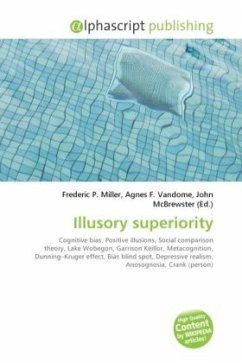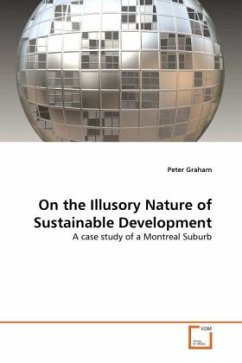
Illusory superiority
Versandkostenfrei!
Versandfertig in 6-10 Tagen
23,99 €
inkl. MwSt.

PAYBACK Punkte
12 °P sammeln!
High Quality Content by WIKIPEDIA articles! Illusory superiority is a cognitive bias in which people overestimate the degree to which they possess desirable qualities, relative to others, or underestimate their negative qualities relative to others. It is one of a class of positive illusions. Whereas in optimism bias people overestimate the likelihood of favorable events happening to them, in illusory superiority people have inflated views of their own characteristics. The effect has been found when people compare themselves to others on many different abilities and personality traits.Some sur...
High Quality Content by WIKIPEDIA articles! Illusory superiority is a cognitive bias in which people overestimate the degree to which they possess desirable qualities, relative to others, or underestimate their negative qualities relative to others. It is one of a class of positive illusions. Whereas in optimism bias people overestimate the likelihood of favorable events happening to them, in illusory superiority people have inflated views of their own characteristics. The effect has been found when people compare themselves to others on many different abilities and personality traits.Some surveys have found all, or nearly all, the participants rating themselves as above the group average. This has been named the Lake Wobegon effect after Garrison Keillor's fictional town where all the children are above average. The strongest effect has been found when people rate themselves on abilities at which they are totally incompetent. These subjects have the greatest disparity between their actual performance and their self-rating. This Dunning Kruger effect is interpreted as a lack of metacognitive ability to recognise their own incompetence












